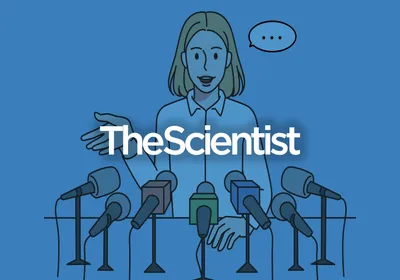 Bryan Box with “Barnaby”BRYAN BOXBryan Box, an ecologist who studies the impacts of spruce beetles on forests, likes to listen to music in the lab. Sometimes it inspires new scientific ideas. It can also inspire him in other ways, such as to organize a satellite March for Science in Anchorage. At least that’s what happened when he was listening to Rage Against the Machine a couple weeks ago.
Bryan Box with “Barnaby”BRYAN BOXBryan Box, an ecologist who studies the impacts of spruce beetles on forests, likes to listen to music in the lab. Sometimes it inspires new scientific ideas. It can also inspire him in other ways, such as to organize a satellite March for Science in Anchorage. At least that’s what happened when he was listening to Rage Against the Machine a couple weeks ago.
The Scientist: How and why did you first become involved in organizing a satellite march in your community?
Bryan Box: I was sitting in my lab working. I had a dish filled with about 15,000 dead beetles. I was sitting there sorting them . . . and every once in a while when I’d need to refocus my eyes and stop looking at beetles—that are, you know, a milligram—I’d look up over at the NPR news feed and something crazier and scarier would happen. . . . As soon as I got home that night, I started throwing out the idea [to organize a satellite March for Science]. Sure enough, a bunch of people got interested. . . . Five-hundred people joined within six hours.
...

















